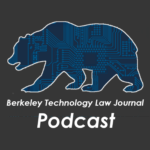by Ross Ufberg (J.D. 2022)
Open-government advocates have wreaked havoc on the world of legal publishing.
The Supreme Court is about to hear a contentious question: Can states copyright the law? Public.Resources.Org, (PRO), a website committed to making the government more accessible, is being sued by the State of Georgia for copyright infringement for purchasing, scanning, and making available online, for free, the complete Official Code of Georgia Annotated (OCGA). The Eleventh Circuit ruled in favor of PRO, reversing the district court’s decision, and the Supreme Court will hear oral arguments on December 2, 2019.
Courts have reached a consensus that federal laws cannot be copyrighted. The government edicts doctrine holds that federal laws are uncopyrightable. The doctrine was developed to further obvious public policy justifications, like the rule of law principles, and to account for the difficulty of deciding how to assign authorship of the law. (The Eleventh Circuit held that the People had “constructive authorship,” since the law is written by “agents of the People.”)[1] While the government edicts doctrine is pervasive, broad uncopyrightability has not yet extended to state law.
At issue in Georgia v. Public.Resource.Org is whether the state’s agreement with LexisNexis violates the government edicts doctrine. According to the agreement, the state holds copyright to the OCGA, and Lexis licenses the exclusive right to publish it. While the OCGA is the official code of Georgia, subject to a bicameral vote in the legislature and is considered authoritative, the unannotated code . . . is not. In fact, “the very first annotation [in the OCGA] . . . warns that ‘attorneys who cite unofficial publication of 1981 Code do so at their peril.’”[2]
In its brief, Georgia argued that the OCGA does not have the force of law, and therefore it is copyrightable. It noted that the unannotated version is available for free, while the annotated code is available on CD-ROMs at 60 public institutions across the state. The state also makes the economic argument that “[a]ffirming the decision [by the Eleventh Circuit] would scuttle the well-established regimes of numerous states that, like Georgia, rely on copyright protection to incentivize private publishers to create and maintain annotated official codes.”[3]
PRO argued that the code has effectively merged with the annotations, so anybody who wants to understand the law must consult the OCGA. Furthermore, the legislative process by which Georgia approves the OCGA bears “sufficient imprimaturs of state authority to fall within the government edicts doctrine under any plausible rule.”[4] Therefore, the annotations are the law and are uncopyrightable.
Berkeley Law faculty members have submitted two amici briefs in support of PRO. Berkeley Law Professor Peter S. Menell and University of Pennsylvania Law Professor Shyamkrishna Balganesh asserted that the appellate court’s ruling was correct on three grounds.[5] First, the OCGA is an official pronouncement of the law and is not copyrightable under the government edicts doctrine.[6] Additionally, all government edicts are “methods of operation” and therefore are uncopyrightable.[7] Finally, “authentic statements of the law” only retain their force when they are expressed in certain mediums.[8] Berkeley Law Professors Jennifer Urban and Erik Stallman submitted a brief on behalf of library and research organizations.[9] They argued that libraries have a duty to give citizens meaningful access to the law. When that access is dependent on having a subscription to Lexis, purchasing the hard copies, or being one of the 60 libraries to whom the state has given a CD-ROM, that access is circumscribed. They also claim that the Eleventh Circuit’s ruling on the case “track[s] centuries of recognition that access to government promulgations anchors and legitimates the relationship between the government and the governed.”[10]
Additional amici briefs were filed in support of PRO by the Cato Institute and the Center for Democracy, the ACLU, Reporters Committee for Freedom of the Press, and The Wikimedia Foundation.
Arkansas, Alabama, Alaska, Idaho, Kansas, Mississippi, Nebraska, South Carolina, South Dakota, Tennessee, Utah, Vermont, Virginia, and the District of Columbia have filed a brief supporting Georgia’s Code Commission, as has the Software and Information Industry Association, among others.
The Court’s decision will have implications on pending cases and may overrule lower court precedent. In a pending case, International Code Council v. Upcodes, the International Code Council (ICC), a non-profit organization that develops building codes and standards, is suing a San-Francisco-based startup UpCodes over copyright infringement. UpCodes scanned a variety of municipal and state building codes that were published and under copyright by the ICC and made them available for free on the Internet. In another case, Veeck v. Southern Bldg. Code Congress Int’l, Inc., the Fifth Circuit held that building codes, once adopted into law, obtain the force of law and become uncopyrightable.[11]
Very shortly, the Supreme Court will take a crack at delimiting the government edicts doctrine and clearing up any uncertainty as to its scope and application. That decision, with force of law, will be available, for free, to anybody with access to the Internet.
[1] See Code Revision Comm’n for Gen. Assembly of Georgia v. Public.Resource.Org, Inc., 906 F.3d 1229, 1232 (11th Cir. 2018), cert. granted sub nom, Georgia v. Public.Resource.Org, Inc., 139 S. Ct. 2746 (2019).
[2] Id. at 1250 (citation omitted).
[3] Reply Brief for the Petitioners at 22, Georgia v. Public.Resource.Org Inc., No. 18-1150 (U.S., 2019), http://www.supremecourt.gov/DocketPDF/18/18-1150/121926/20191108144123535_2019-11-07%20Reply%20Brief%20with%20Appendix%20-%20to%20Printer.pdf [https://perma.cc/X6GN-G7KA].
[4] Brief of Respondent at 18, Georgia v. Public.Resource.Org Inc., No. 18-1150 (U.S., 2019), http://www.supremecourt.gov/DocketPDF/18/18-1150/118634/20191009175846470_18-1150%20bs.pdf [https://perma.cc/R9SC-ZKCR].
[5] Brief of Professors Shyamkrishna, Balganesh and Peter S. Menell as Amici Curiae in Support of Respondent, Georgia v. Public.Resource.Org Inc., No. 18-1150 (U.S., 2019), https://www.supremecourt.gov/DocketPDF/18/18-1150/119117/20191016122742730_38845%20pdf%20Menell.pdf [https://perma.cc/U4HE-6GMQ].
[6] Id. at 1–2.
[7] Id.
[8] Id.
[9] Brief for American Library Association of College and Research Libraries, Association of Research Libraries, and the American Association of Law Libraries as Amici Curiae in Support of Respondent, Georgia v. Public.Resource.Org Inc., No. 18-1150 (U.S., 2019), https://www.supremecourt.gov/DocketPDF/18/18-1150/119208/20191016155247671_18-1150_Urban_Brief%20Amicus%20Curiae-Library%20Associations.pdf [https://perma.cc/YP29-6QTS].
[10] Id. at 3.
[11] 293 F.3d 791, 805–06 (5th Cir. 2002) (en banc).


